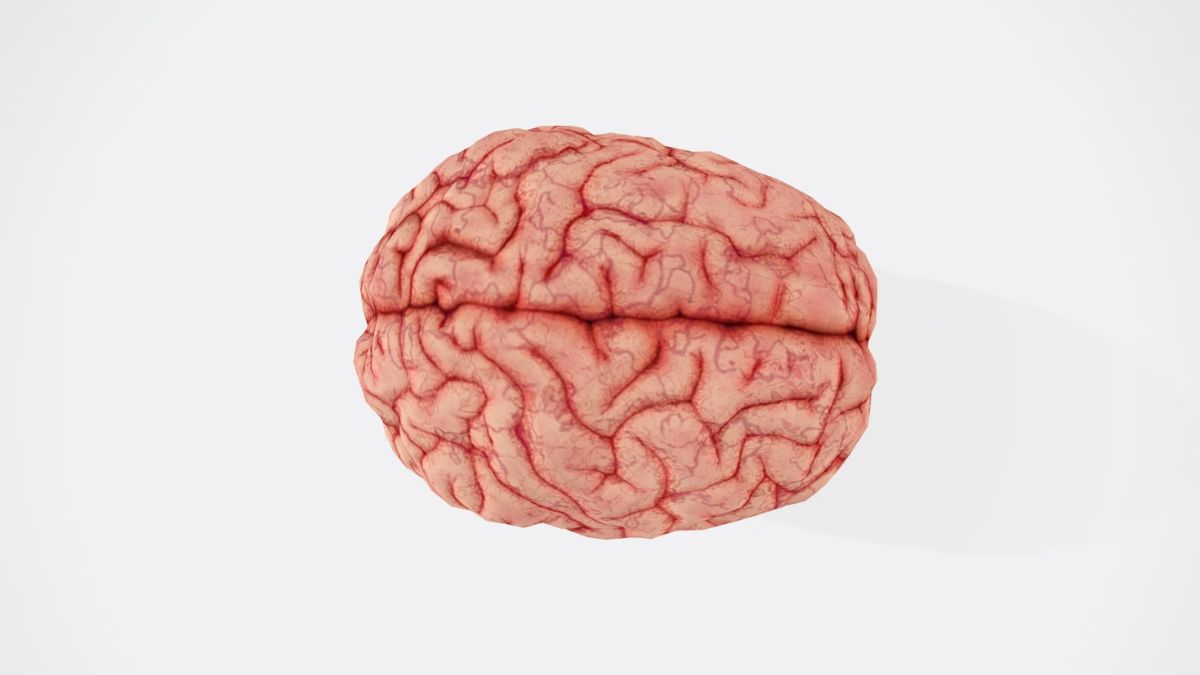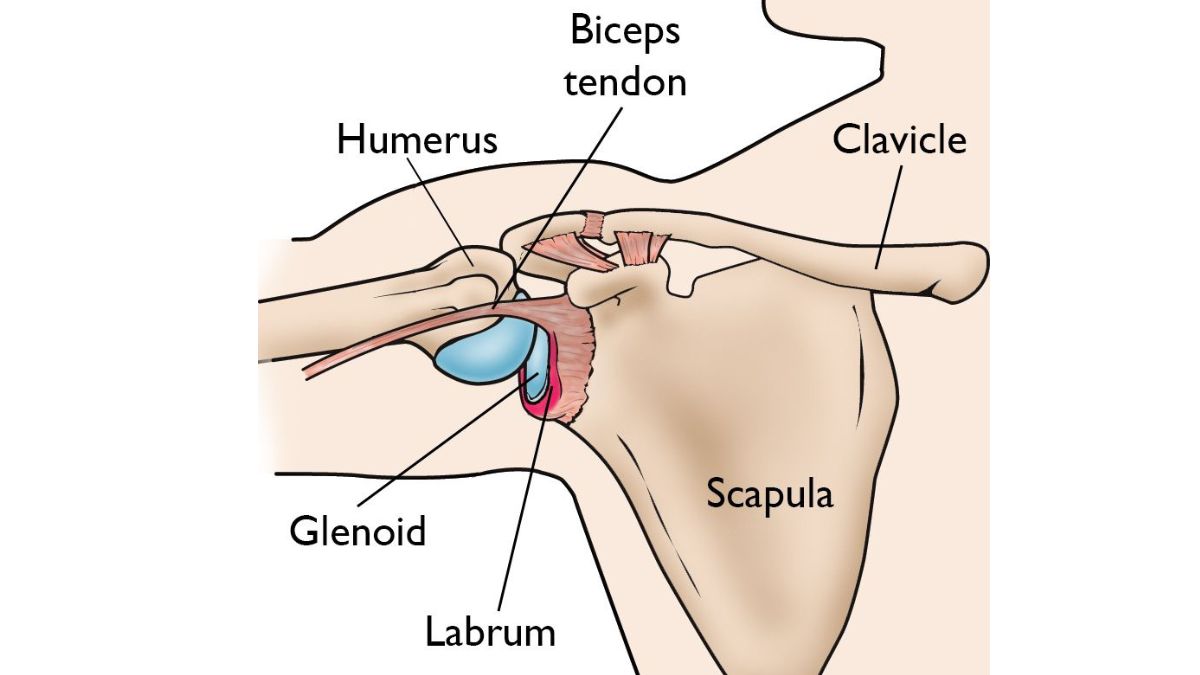HEALTH
Want to Stay Cognitively Intact? Avoid These 4 Things to Maintain a Healthy Brain

Certain organs inside the human body are said to be vital in the sense that it is impossible to survive without their proper functioning. Of these, the brain may be the most important because it coordinates and controls numerous bodily functions, including thoughts, memory, speech, and even digestion.
Despite such an incredible role, the sad truth is that brain health begins to decline as early as middle age. By the time we turn 40 years old, this organ has begun shrinking by 5% and will continue to do so every 10 years. This is exactly why memory gets blurred, eyesight weakens, and the ability to learn declines.
Now, brain aging is a natural process and it cannot be stopped altogether. However, some will succumb to this process sooner than later. Want to stay cognitively intact for a long time? Then, keep reading this article to learn four things that you must avoid.
Mental Inaction
A normal adult human brain weighs around three pounds on average. It is a complex organ made of 60% fat and 40% carbohydrates, water, proteins, and salts. Your brain may not be a muscle but it requires consistent exercise to stay sharp and healthy.
Extended periods of mental inaction can make your brain lazy and even unhealthy. You may find yourself being attracted to procrastinating behaviors and apathy. The choice is simple – you must use your brain regularly or lose it prematurely.
While physical exercises and body movements are great, consider engaging in some brain-friendly stimulating exercises too. These would include playing cards, crossword puzzles, Sudoku, and reading. Cross-training your brain through a combination of these activities will ensure that it functions optimally for a long time.
As you work on becoming more mentally active, also consider eliminating passive activities. A prime example would be television, which does not stimulate the brain but may feed it misleading information.
Solitary Confinement
As humans, we are naturally created to be social beings. This means that we tend to thrive in community and cannot live in isolation. Even those who consider themselves to be introverts need human company from time to time.
Two are better than one and this holds true personally as well as professionally. Those who spend their days in social isolation or loneliness may experience a decline in cognitive function. Studies have even found a link between social isolation and the risk of Alzheimer’s disease.
Voluntary solitary confinement or avoidance of social interactions can cause serious psychological damage. It is a form of self-inflicted torture for the brain that can lead to depression, anxiety, and even paranoia. Some of the most common reasons for social withdrawal include fear, vulnerability, and potential rejection.
If you also tend to avoid the company of your friends and family for any of these reasons, do not embrace a secluded life. It will wreak havoc on your brain health. Instead, practice healthy ways to reestablish social connections. Learn to control your breathing, practice relaxation techniques, challenge negative thoughts, and show up anyway. With time, you will begin to enjoy being around others.
Certain Forms of Hormonal Drugs
Hormonal drugs refer to chemical substances used to treat different conditions by adding, removing, or blocking certain hormones. Both men and women can be treated using these drugs. They are primarily consumed or ingested for conditions affecting the reproductive system.
Of all hormonal medical interventions out there, the most common is the birth control used by women. Be it the pill or the injectable Depo Provera, both can do serious damage to the brain. According to Healthline, hormonal birth control can change neural signaling, thereby leading to issues like depression and anxiety.
It may also affect other neural pathways associated with memory and attention. Depo Provera goes a step further and may lead to brain tumors or meningiomas. It is a benign tumor that grows from the meninges area of the brain. This means the membranes that surround the brain and the spinal cord.
Thousands of women have used this birth control shot and have now filed the Depo Provera lawsuit due to the said condition. It has been alleged that the manufacturer, Pfizer Inc., never warned about the risks associated with Depo Provera.
This litigation is currently in its nascent stages but is expected to progress as more cases are filed. TruLaw shares that women who received a meningioma diagnosis after at least two doses of Depo Provera qualify to file the lawsuit. We have given only one example. Almost every form of hormonal drug has some bad news for your brain, although the risks may vary.
Stimulants and Junk Food
We previously discussed certain activities that can stimulate the brain and provide it with the exercise it needs to stay healthy. Certain kinds of stimulants do the exact opposite. Yes, we’re talking about caffeine, which many people cannot even imagine starting their day without.
Such stimulants may activate the brain and nervous system in the short run, as studies suggest. This is why coffee becomes a trusted companion to stay alert for an all-nighter. However, it can age the brain more speedily, which spells bad news in the long run.
Excessive consumption may even create the risk of dementia. However, low doses should not affect much. The same goes for highly processed junk food, which cannot really be called food in the first place. These include greasy burgers, sugar-laden sodas, fried donuts, and so on.
According to RMIT University, junk food changes the brain in at least five ways.
- It releases dopamine and gives a ‘high’ or ‘kick’
- It tends to make us more impulsive and reckless
- It can lead to neuroinflammation, which damages brain cells
- It shrinks the brain’s learning capabilities
- It hinders the process of neuron generation or neurogenesis
This list in itself should wake us from our stupor and encourage us to invest in good-quality food items. If you want a straightforward diet to follow, consider the Mediterranean diet. Having no fixed portions or caloric range, this diet can meet practically anyone’s needs. Plus, it is full of healthy fats, proteins, antioxidants, and other nutrients the brain needs to stay healthy.
How have you been taking care of your brain so far? If you’re in your younger years of life, now is the best time to apply the tips discussed in this article. Keep in mind that your brain cannot replace damaged neurons in certain areas. One thing is sure the brain cannot fix itself internally like the skin can.
Moreover, diseases associated with brain issues are among the most debilitating to endure and the most expensive to treat. When you can maintain a healthy brain with a few easy lifestyle changes and habits, then why leave it at the mercy of time? Be proactive and make wise brain-friendly choices today.
HEALTH
What Is a SLAP Tear? Understanding This Common Shoulder Injury

If you’ve been experiencing shoulder pain, clicking, or a loss of strength—especially during overhead movements—you may be dealing with more than just a strain. One possible culprit is a SLAP tear, a specific type of injury to the shoulder joint that can affect everyone from athletes to weekend warriors.
What Does “SLAP Tear” Mean?
SLAP stands for Superior Labrum Anterior and Posterior. In simpler terms, it’s a tear in the top part of the labrum—the ring of cartilage that surrounds the socket of your shoulder joint. This cartilage helps stabilize your shoulder and keep the ball of your upper arm bone in place. When torn, the result can be instability, discomfort, and reduced mobility.
How Does a SLAP Tear Happen?
SLAP tears can result from either acute trauma or repetitive motion. Some of the most common causes include:
- Falling on an outstretched arm
- Lifting heavy objects or weights with poor form
- Repetitive overhead movements (common in baseball, swimming, tennis, etc.)
- Sudden pulling motions (like grabbing something while falling)
In some cases, SLAP tears can also be part of the natural wear-and-tear process, especially in people over 40.
Common Symptoms of a SLAP Tear
Not all SLAP tears feel the same, but here are some symptoms to watch for:
- Deep shoulder pain, especially during overhead activity
- A clicking or popping sensation
- Weakness or fatigue in the shoulder
- Limited range of motion
- A feeling that your shoulder is going to “slip out”
These symptoms often mimic other shoulder conditions, which is why getting an accurate diagnosis is so important.
Diagnosing a SLAP Tear
A shoulder specialist will typically begin with a physical exam and a review of your activity history. Imaging tests like an MRI can help confirm the diagnosis, though in some cases, an arthroscopic procedure may be necessary to fully visualize the tear.
For a deeper dive into how SLAP tears are diagnosed and treated, visit: https://levelupshoulder.com/slap-tears/
Treatment Options
Treatment depends on the severity of the tear and your activity level. In mild cases, rest, anti-inflammatory medications, and physical therapy may be enough to restore function. For more serious tears—especially in younger or highly active individuals—arthroscopic surgery may be recommended to repair the torn labrum.
Post-surgery, a rehabilitation program will help restore range of motion, rebuild strength, and reduce the risk of reinjury.
Don’t Ignore Shoulder Pain
A SLAP tear can seriously impact your ability to perform daily tasks and enjoy physical activity. If you’re experiencing persistent shoulder pain, especially with overhead movements, it’s worth getting it checked out. Early treatment leads to better outcomes and a quicker return to the things you love.
HEALTH
What Is Orthopedic Medicine? An Intro to Bone and Joint Health

From sore knees after a weekend hike to a torn rotator cuff that just won’t heal, many of us deal with bone, joint, or muscle pain at some point in our lives. That’s where orthopedic medicine comes in. But what exactly does it cover—and when should you see an orthopedic specialist?
Whether you’re an athlete, a weekend warrior, or simply want to stay mobile and pain-free as you age, understanding the basics of orthopedic care can help you make better decisions about your health.
What Is Orthopedic Medicine?
Orthopedic medicine is a branch of medicine focused on the musculoskeletal system, which includes your bones, joints, ligaments, tendons, muscles, and nerves. The goal is to diagnose, treat, and prevent injuries and disorders that affect movement, stability, and function.
Orthopedic specialists, also known as orthopedists or orthopedic surgeons, are trained to handle everything from acute injuries (like fractures and dislocations) to chronic conditions such as arthritis, tendonitis, and degenerative joint disease.
What Conditions Do Orthopedic Doctors Treat?
Orthopedic medicine covers a wide range of conditions affecting different areas of the body, including:
- Shoulder injuries: rotator cuff tears, labral tears, impingement
- Knee issues: ACL tears, meniscus injuries, runner’s knee, arthritis
- Spine problems: herniated discs, sciatica, scoliosis
- Hip pain: bursitis, labral tears, osteoarthritis
- Hand and wrist: carpal tunnel syndrome, fractures, tendonitis
- Foot and ankle: plantar fasciitis, sprains, Achilles tendon injuries
Many of these conditions can be treated with non-surgical methods, though surgery may be necessary in more severe cases.
Types of Orthopedic Care
Orthopedic care includes both surgical and non-surgical options, depending on the injury or condition. Treatment approaches may involve:
- Physical therapy and rehabilitation
- Injections (such as cortisone or PRP) to reduce inflammation and pain
- Bracing or casting for stability and healing
- Minimally invasive surgery, like arthroscopy
- Joint replacement surgery, typically for hips, knees, or shoulders
For example, orthopedic treatments by Level Up Shoulder, Dr. Drake focus not only on surgical repair of shoulder injuries, but also on functional rehab, strength restoration, and getting patients back to the activities they love—faster and stronger.
When Should You See an Orthopedic Doctor?
If you’re experiencing any of the following, it may be time to schedule a consultation:
- Persistent joint or muscle pain
- Swelling or stiffness that doesn’t improve with rest
- Limited range of motion in a joint
- Weakness or instability
- An injury that isn’t healing properly
- Pain that interferes with your daily life or sleep
Early intervention can prevent long-term damage and get you back to full strength sooner.
Conclusion
Orthopedic medicine plays a vital role in keeping your body moving the way it should. Whether you’ve suffered a sports injury or are dealing with years of wear and tear, orthopedic specialists are trained to help you regain mobility, reduce pain, and improve your quality of life.
From preventive care to advanced surgical procedures, orthopedic treatments are designed to keep your bones and joints working better, for longer.
HEALTH
Raising Healthy Smiles: The Essentials of Pediatric Dental Care

What Is Pediatric Dentistry?
In addition to providing dental care, pediatric dentistry promotes good oral hygiene from an early age. Unlike general dentistry, pediatric dentists focus on young patients’ unique challenges and considerations. Their specific training prepares them to prevent and treat oral health problems in newborns, kids, and teenagers. Facilities like a Pediatric Dentist in Thornton provide environments specifically designed for children, helping ease anxiety and making dental visits enjoyable experiences. A pediatric facility’s vibrant and entertaining surroundings can significantly influence a child’s desire to get dental care.
The Importance of Early Dental Visits
Starting dental visits early is an investment in lifelong oral health. These initial visits, as recommended by the American Academy of Pediatric Dentistry, set the stage for understanding the importance of dental care. These are crucial periods when dentists can introduce children to oral hygiene and the significance of caring for their teeth. By capturing a child’s interest and removing any fear associated with dental visits, these experiences contribute to effectively monitoring and guiding the development of both baby and permanent teeth.
Understanding Common Pediatric Dental Issues
Children’s dental problems, including cavities and gum disease, are sometimes written off as trivial, but if ignored, they can cause serious health problems. Children are prone to cavities due to the sugary foods they consume and their sometimes irregular brushing habits. In addition, behaviors like thumb-sucking and extended use of pacifiers can affect tooth alignment and jaw development. By attending regular dental visits, parents can gain insights from dental professionals on mitigating these risks and ensuring early intervention. A more secure oral future can result from early detection of these disorders, which can stop them from developing into more serious tooth health difficulties.
Tips for Promoting Healthy Dental Habits
Creating a routine around dental care can help instill lifelong habits in children. They must be taught to use fluoride toothpaste and clean their teeth twice daily. Flossing should also be incorporated once teeth begin to touch. These habits need reinforcement at home to foster a sense of accountability in children. Parents can use visual aids or reward systems as positive reinforcements. Demonstrating proper techniques adds value, as children are likely to imitate the actions they observe. Good oral hygiene should be framed positively as an empowering practice rather than a chore.
Nutrition’s Role in Oral Health
A balanced diet is a pillar of strong oral health. Foods containing essential minerals, particularly calcium and phosphorus, are crucial in maintaining healthy enamel and oral well-being. Nuts, leafy greens, and dairy products can all significantly improve tooth health when consumed regularly. It’s also critical to restrict the consumption of acidic drinks and sugary foods that cause cavities. The resource on WebMD highlights the importance of a balanced diet in protecting your child’s teeth. Making informed choices about diet is an impactful way for parents to exercise control over their child’s oral health outside of the dental office.
How to Choose the Right Pediatric Dentist
Choosing a pediatric dentist shouldn’t be rushed. It’s a decision that can influence a child’s view of dental care. A pediatric dentist’s ability to communicate effectively with children and a friendly, inviting office atmosphere can make visits less intimidating. You could feel more at ease reading online reviews or asking friends for recommendations. The right dentist will engage with children in a way that builds trust and encourages enthusiasm for dental care. Parents are encouraged to visit potential dental practices to assess the environment and ensure it aligns with their child’s comfort levels and needs.
Setting Up a Child-Friendly Dental Routine
Making dental hygiene a habitual, positive practice begins with creativity. Utilizing tools such as songs, colorful toothbrushes, or even digital apps tracking brushing time can turn routine into fun. Allowing your child to pick out their dental supplies can also foster a sense of ownership over their oral hygiene. Establishing a routine, like brushing after breakfast and before bed, helps to weave dental care seamlessly into daily life. Consistency is key, and positive reinforcement can encourage a child to see these activities as enjoyable and rewarding.
Navigating Dental Anxiety in Children
Dental anxiety can significantly impact a child’s willingness to receive care, but it can be managed successfully. Introducing your child to the dental office gradually and supportively can alleviate fear. Explaining dental procedures using child-friendly language and offering reassurance can demystify the experience. Techniques such as deep breathing exercises or storytelling can divert attention, making visiting less daunting. Creating a supportive environment at home and during dental visits cultivates a positive attitude toward long-term dental wellness.
-

 BLOG1 year ago
BLOG1 year agoATFBooru: A Hub for Animated Art and Community
-

 CONSTRUCTION1 year ago
CONSTRUCTION1 year agoBuilding a Home Gym in Your Basement (7 Key Renovation Tips)
-

 BLOG1 year ago
BLOG1 year agoFictionmania: A Deep Dive into the World of Transformative Stories
-

 LIFESTYLE1 year ago
LIFESTYLE1 year agoVersatile Living: Stylish Indoor Outdoor Rugs with Eco-Friendly Appeal
-

 GAMES1 year ago
GAMES1 year agoSnow Rider 3D: Unblocked Tips and Tricks for Gamers
-

 LIFESTYLE1 year ago
LIFESTYLE1 year agoAchieve Elegance with Chic Blue Formal Dresses and Redken Professional Hair Care for All Hair Types
-

 BLOG1 year ago
BLOG1 year agoGIFHQ: A Comprehensive Guide
-

 BLOG1 year ago
BLOG1 year agoVincent herbert new wife: A Detailed Overview
